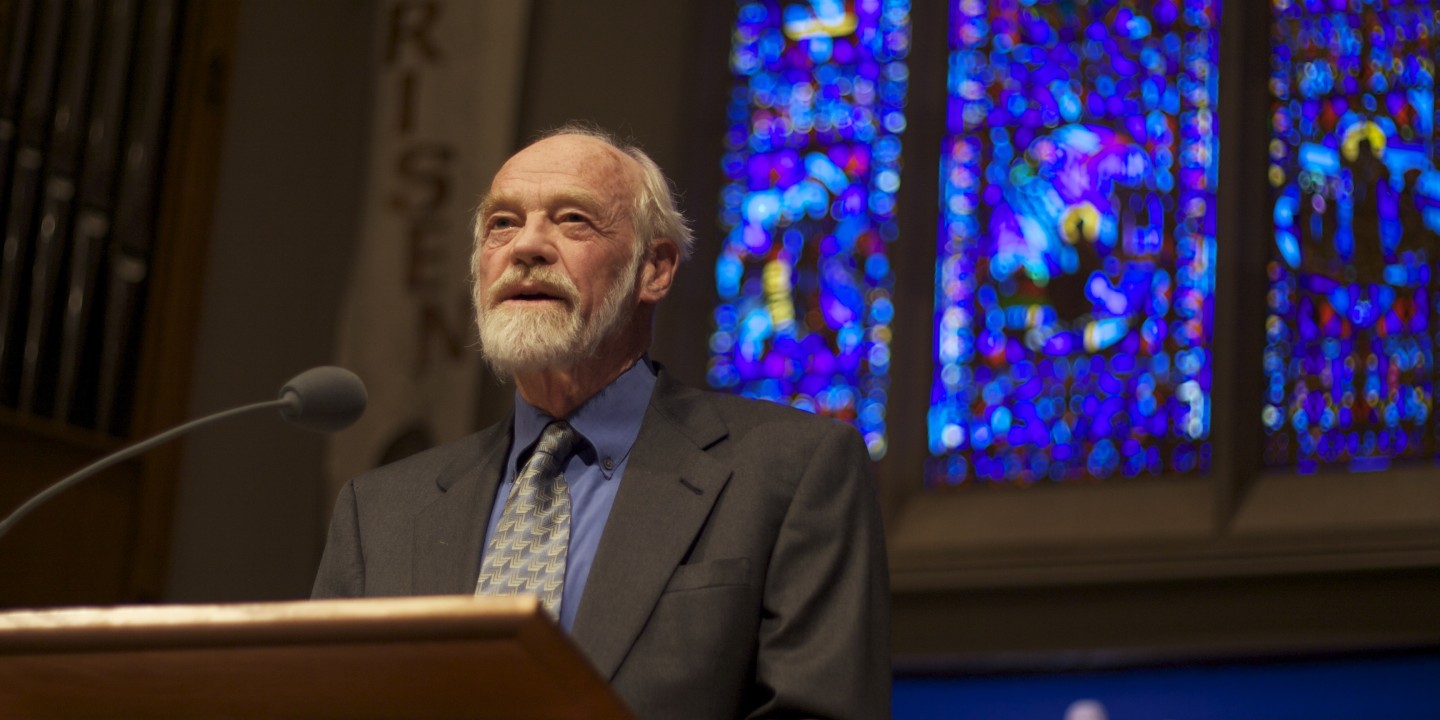Eugene Peterson, author of The Message and pastor to pastors, dies at age 85
“I’ve loved being a pastor, almost every minute of it,” Peterson once told the Century.

Eugene Peterson, most prominent as author of The Message, a version of the Bible in contemporary language, died October 22 at age 85. He had been on hospice care with dementia and heart failure.
“It feels fitting that his death came on a Monday, the day of the week he always honored as a sabbath during his years as a pastor,” his family wrote in a statement. “Eugene has now entered into the fullness of the kingdom of God and has been embraced by eternal sabbath.”
A scholar of biblical Greek and Hebrew, Peterson was an assistant professor at a seminary when he decided to pursue a pastoral vocation. In 1962 he founded Christ Our King Presbyterian Church, a Presbyterian Church (U.S.A.) congregation in Bel Air, Maryland, leading it for three decades while also writing to encourage other pastors.
Read our latest issue or browse back issues.
“Peterson’s decision to pursue the pastoral life did not involve turning away from intellectual pursuits or discarding his passion for biblical languages,” David J. Wood wrote in 2002 when interviewing Peterson for the Christian Century. “It is equally clear that his vocation has been distinctly pastoral and that his intellectual flourishing has been shaped by and for that vocation.”
Peterson talked with Wood about the demands and rewards of ministerial leadership.
“I’ve loved being a pastor, almost every minute of it,” Peterson said. “I remain convinced that if you are called to it, being a pastor is the best life there is. But any life can be the best life if you’re called to it.”
He recommended pastoring in a setting of between 50 and 500 people—the size to which the church he founded had grown by the time he retired in 1991.
“The only way as a pastor to be discriminating and aware of the deeply ingrained idolatrous nature of human beings is by learning to love a particular group of people in one place over time,” Peterson said. “They’ve got to know you are on their side even if you don’t give them what they want you to give. They’re not going to know that just from hearing you from the pulpit.”
Altogether, he wrote more than 30 books, including his 2011 memoir The Pastor and A Long Obedience in the Same Direction. Peterson retreated from public life last year after publishing his final book, As Kingfishers Catch Fire.
Peterson was a Faith Matters columnist for the Century and wrote several feature articles published in the magazine in recent decades. In 2003 he delivered the Century’s annual lecture, on reclaiming contemplation for ordinary people.
“If there’s a single word that identifies the contemplative life, it is congruence—congruence between ends and means, congruence between what we do and the way we do it,” he said, as adapted later into a Century article. “Two areas are conspicuously in need of attention these days regarding ways and means, areas in which we’re doing the right thing the wrong way.”
He noted that Christian spirituality is often geared toward being a better person and congregational life is turned into a consumer enterprise.
“Formation of spirit, cultivation of soul, developing a contemplative life, realizing congruence between the way and truth—all this is slow, slow work requiring endless patience,” he said. “Until we care as much about and are as careful with the means as we are the ends, virtually anything we do makes matters worse. Spiritual theology is primarily about means. Life is contemplative when the means become congruent with the ends.”
A version of this article, which was edited November 14, appears in the print edition under the title “People: Eugene Peterson.”






